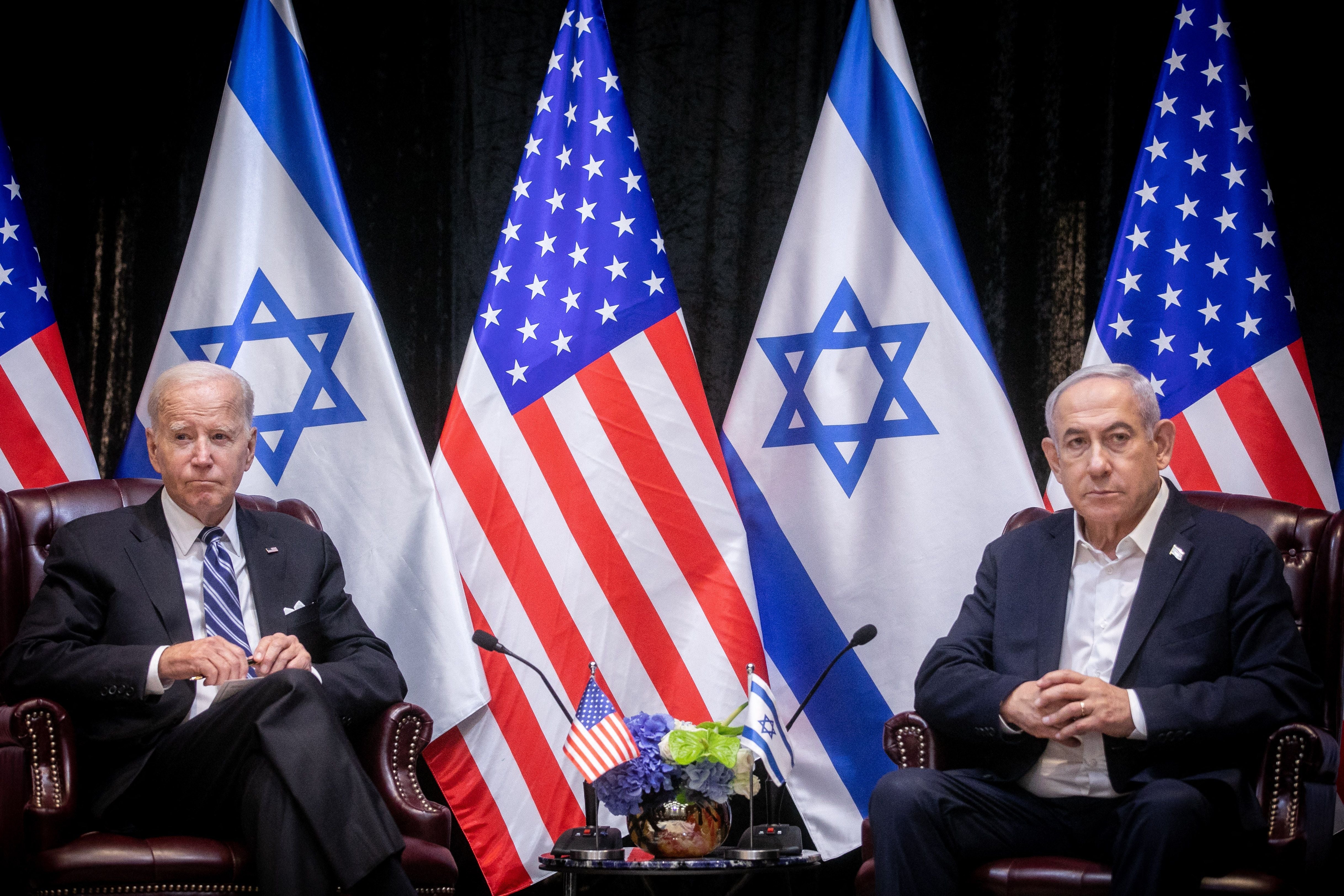The rift between Biden and Netanyahu is widening
By ignoring the US president, Israel’s prime minister has forced a significant change in the relationship between the two countries

There has never been any love lost between President Joe Biden and Israeli prime minister Benjamin Netanyahu, but until this week, one could usually say with high confidence that their dysfunctional personal relationship would take a backseat to the historic alliance between the US and Israel.
Not anymore.
Mr Netanyahu, the longest-serving head of government in Israel’s 75 years of statehood, had been experiencing a cold shoulder of sorts from Mr Biden after returning to government. The American president was wary of his Israeli counterpart on account of Mr Netanyahu and the Likud Party’s efforts to remake Israel’s judiciary into a more political, more compliant and less powerful entity, more akin to Viktor Orban’s Hungary or the Polish judiciary under the Law and Justice Party. And Mr Netanyahu’s long history of antagonising and undermining US leaders elected from the Democratic Party was well-known.
Then the terror attacks on 7 October happened. The sheer brutality of Hamas’ assault and the existential threat to Israel posed by the militant group outweighed what Biden aides have described as a healthy scepticism of the Israeli leader’s intentions. The two leaders got a little closer.
The president’s natural inclination to support Israel’s right to self-defence, Biden confidantes say, took precedence over prominent Democrats’ suggestion that he take a more realpolitik-infused approach to the US-Israel relationship. Such a strategy would have seen Mr Biden take harder lines on Gaza. Many in Mr Biden’s own party had imagined the president might use military aid as leverage to force changes in how the Israel Defense Forces operated in the region.
Doing so would have been a marked departure from decades of US policy. But it would also have been more in line with the preferences of many American voters, who, according to polling, support Israel’s right to self-defence but also don’t want to see Palestinian civilians killed en masse.
Mr Biden, for better or worse, had calculated that doing what he estimated to be the right thing – strongly supporting Israel’s war efforts – rather than the politically expedient thing, would pay dividends in the end.
But Mr Netanyahu made this impossible for him.
The Israeli leader – who is currently fighting corruption charges that could see him jailed if he were to relinquish power or be forced from office – chose to take the hard line favoured by the right-wing extremists to whom he owes his return to the premiership. Those extremists include some cabinet ministers who’ve called for the Gaza Strip – and the West Bank – to be ethnically cleansed of Palestinians in favour of Israeli Jewish resettlement.
At every turn, Mr Netanyahu made a point of thumbing his nose at Mr Biden, despite the political risk the US leader took by embracing him. Now, by refusing to heed the president’s counsel to stay out of Rafah, he has forced Mr Biden’s hand.
Mr Biden declared during a televised interview on Wednesday night that the US won’t provide Israel with the types of arms that could be used to effect a wholesale slaughter of residents in Rafah. In the interview, where he was questioned on CNN by the anchor Erin Burnett, Mr Biden acknowledged putting a pause on shipments of bombs and underlined how he was happy to help Israel defend itself but not happy to aid in the deaths of civilians.
“Civilians have been killed in Gaza as a consequence of those bombs and other ways in which they go after population centres,” he said, adding at another point that “it’s just wrong” to cause a humanitarian crisis in the region.
“We’re not walking away from Israel’s security. We’re walking away from Israel’s ability to wage war in those areas,” he added.
Conditioning aid to the country is a significant change in strategy. Yet publicly, both sides are acting like this development is much ado about nothing.
In a video posted to social media not long after Mr Biden’s interview, Mr Netanyahu said “no amount of pressure” will “stop Israel from defending itself” and declared: “If Israel is forced to stand alone, Israel will stand alone.”
John Kirby, the national security communications adviser for Mr Biden, told reporters on Thursday that the president’s recent statement didn’t portend any major change in US policy. Mr Kirby also pledged that the US will “spend every dime” of the funding Congress has earmarked for Israel’s defence.
But the damage is done. By forcing Mr Biden to publicly declare that the US won’t support a wholesale invasion of Rafah after making a show of ignoring his counsel, Mr Netanyahu has let the US president move the Overton Window.
He has now made it possible that he or his successors may have to abide by the same rules everyone else does when making use of American weapons.
Bookmark popover
Removed from bookmarks